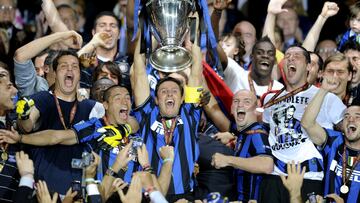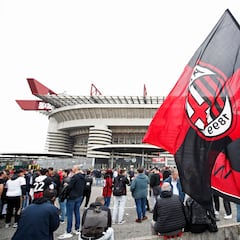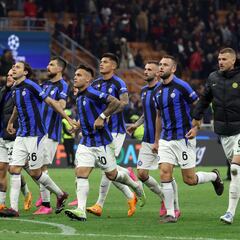How did Inter get its name?
The story behind the origins of Football Club Internazionale Milano and the close links to Champions League opponents AC Milan.


Inter and AC Milan will face off at San Siro on Tuesday for the right to take on either Real Madrid or Manchester City in the Champions League final on 10 June, but can you remember when there used to be only one soccer club in the city of Milan?
You know, back in the late 1890s and early 1900s. No? Well, let me jog your memory. To explain why Internazionale – even those of you who don’t know a word of Italian can probably guess it translates to ‘international’ in English – are indeed called Internazionale, we actually have to first tell the story of their bitter rivals and co-tenants AC Milan (yes, you might be able to guess what’s coming…).
Tick-tock... 🕰️#ForzaInter #InterMilan #UCL pic.twitter.com/w9umPbAFoA
— Inter (@Inter_en) May 16, 2023
AC Milan’s English origins
The Rossoneri were founded in December 1899 as Milan Foot-ball and Cricket Club (they no longer play cricket) by former English amateur soccer player Herbert Kilpin, who had moved to Italy to work in the textile industry. Kilpin first lived in Turin, where he started up the now-defunct Internazionale Torino, before moving to Milan and setting up what has now become AC Milan.
Before Serie A was created in 1929, the top level of soccer in Italy went by several different names, including Campeonato Italiano di Football (Italian Football Championship) and Prima Categoria (First Category), which Milan won on three occasions in quick succession (1901, 1906 and 1907) shortly after they started competing.
How did AC Milan lead to Internazionale being formed?
Related stories

How do the fans share San Siro?

Inter's sponsor-less jersey explained
But despite their initial success, all was not well behind the scenes. The year after the last of those three titles, the club’s 44 board members got involved in an almighty disagreement regarding what their signing policy should be. Despite its origins, many believed only Italians should be allowed to represent Milan, while a separate group – led by Italians and Swiss – favoured a more open-minded approach: they wanted to be able to sign foreign players – ‘international’ players, if you will.
ONE MOMENT 🖤💙#ForzaInter #InterMilan #UCL pic.twitter.com/MG8rXAgB4o
— Inter (@Inter_en) May 16, 2023
‘International’ Milan
And so this particular group upped sticks and went off to set up their own club, one in which players from all around the globe were welcome, provided they were good enough. Football Club Internazionale Milano – and one of Italy and indeed Europe’s hottest rivalries - was born.